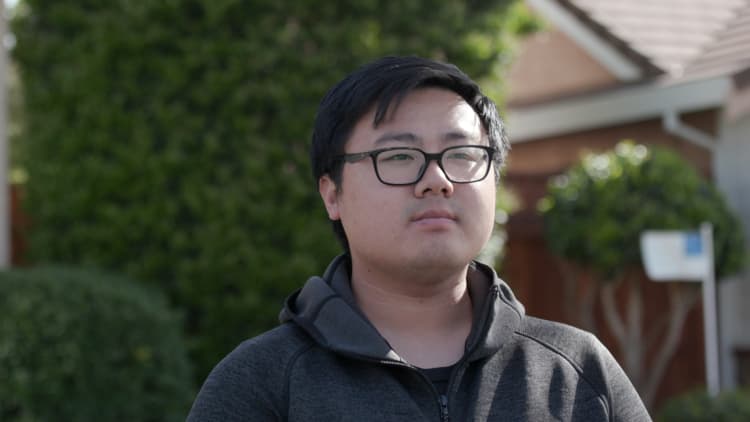
How Asian Americans became the center of the affirmative action debate
By many standards, Michael Wang, 25, was a perfect student in high school. Wang — who is currently a third-year law student at Santa Clara University School of Law — graduated high school in 2013 in the top 0.5 percent of his class with a 4.67 weighted GPA, near-perfect test scores and countless extracurricular activities.
For Wang, this was his strategy to get into the Ivy League. "If I'm able to demonstrate that I'm multifaceted, multitalented, and have a variety of different interests, then I'd appear more well-rounded that they can mold and shape into however of a model student they want to," Wang says.
Wang was shocked when all of this resulted in rejections from all of his first choice-schools — Yale, Princeton, Brown, Stanford — as well as Columbia and Harvard, at which he had initially been waitlisted. Despite still getting into some of the nation's top schools including Dartmouth and University of Pennsylvania, he felt depressed and angry. He wondered what more he could've done to stand out, or conversely, to conceal his identity. Wang searched the internet to see if others felt similarly and found a community of other Asian American students who assumed they were held to a higher standard, confirming that he was not alone in the belief that he may have been rejected because of his race. It prompted him to take action.
In 2014, Wang wrote an op-ed for the San Jose Mercury News addressing his experience and the article went viral among the Asian American community. Michael's father, Jeff Wang, also co-created the nonprofit group Asian American Coalition for Education in an effort for families to advocate for education equality and fight for their cause. Shortly after, the organization created an alliance with Edward Blum of Students for Fair Admissions (SFFA) a membership-based nonprofit organization dedicated to ending the use of race in admissions across the country.
In October 2022, the Supreme Court will be hearing two cases filed by SFFA against Harvard and the University of North Carolina (UNC) that challenge the use of race in admissions. Although these are not the first affirmative action cases to reach the Supreme Court, it is the first time the plaintiffs are overwhelmingly Asian American — which was partially prompted by Wang's activism. In the lawsuits, they claim that racial biases and unfair practices are used as a soft quota to keep Asian American enrollment artificially low, which both Harvard and UNC have denied.
Many scholars and experts argue that a ruling to end all race-based affirmative action could do more harm for Asian American applicants than good. "Elimination of race-conscious admissions isn't going to necessarily increase the chances of Asian American applicants gaining admissions," says Mitchell Chang, professor at UCLA and expert witness in the SFFA v. UNC trial. Chang highlights that the elimination of race-conscious admissions could prompt schools to drop other admissions requirements. "I suspect that they will seriously entertain dropping standardized tests as a way to consider admissions, and this actually may have a negative effect on the chances of Asian Americans gaining admissions, especially from immigrant populations who tend to be very strong when it comes to achievement test scores."
Watch the video above for more.









